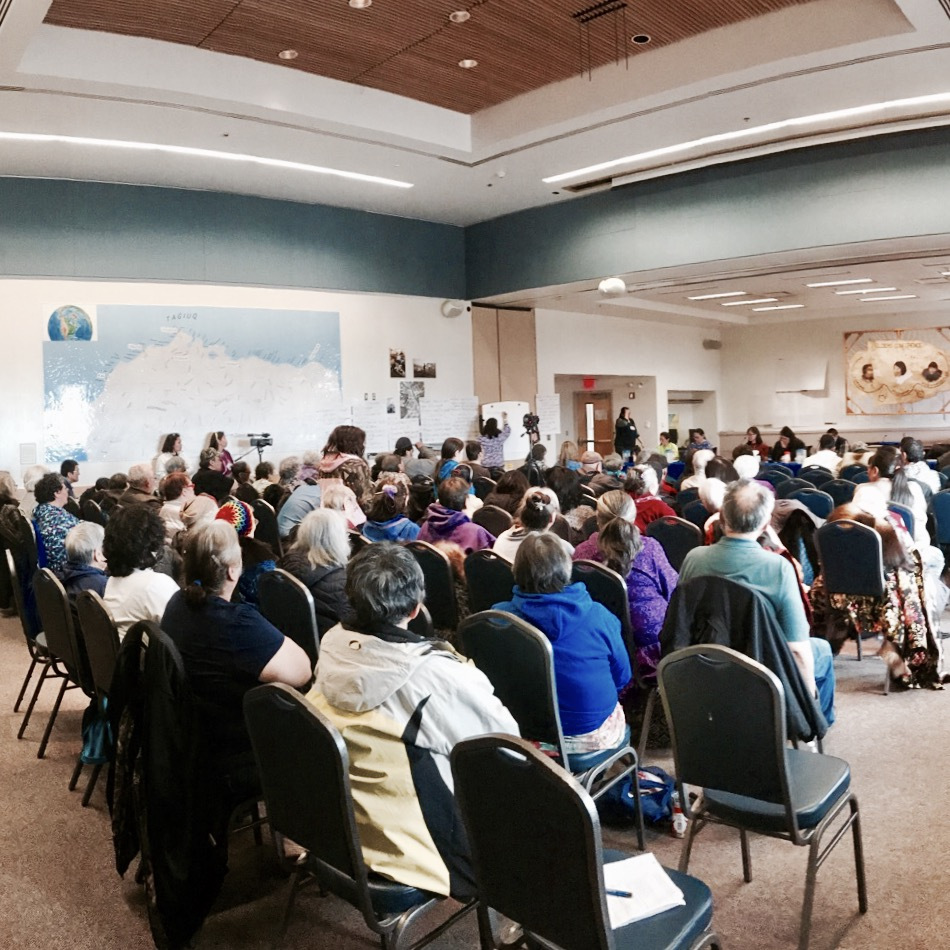data hk
keluaran sdy
keluaran sgp
link sbobet
data hk
pengeluaran sgp
pengeluaran hk
slot gacor
pengeluaran sgp
keluaran macau
togel hk
keluaran hk
slot depo qris
slot gacor
keluaran macau
idn play
Live Macau
Pengeluaran Macau
data sdy
keluaran hk
slot online
togel hongkong
keluaran kamboja
judi bola
data sgp
pengeluaran hk
keluaran sdy
Live SGP
Result HK
keluaran hk
data sgp
keluaran hk
data hk
keluaran hk
data sgp
Paito HK
Togel
Result SGP
Slot Qris
slot deposit 5000
dana slot
togel hongkong
Syair SDY
Data SDY
Data SDY
Togel Sgp
Data HK
Keluaran sgp
Data SGP
Data SGP
Keluaran SGP
Pengeluaran Taiwan
Data SGP
Togel Macau
slot dana
live macau
Pengeluaran HK
Syair HK
Pengeluaran Macau
Live Macau
slot pulsa
Slot Gacor
Keluaran Macau
Result SGP
Result Taiwan
Slot Pulsa
Pengeluaran HK
Togel Hongkong
Togel
Hongkong Pools
Qris Slot
Keluaran Taiwan
data sdy
Toto Macau
Slot Demo Gratis
Togel HK
Togel
Data SDY
Toto Macau
Live Draw HK
sbobet
togel hari ini
togel hari ini
slot resmi
data hk
keluaran sgp
Result HK
keluaran sgp
Keluaran China
Pengeluaran Jakarta
data sgp
Togel Hari Ini
data hk lotto
Togel Jakarta
Keluaran China
Nenektogel
slot qris
Nenektogel4d
Nenek togel
toto sgp
paito warna hk lotto 4d
keluaran macau
nenek slot
Keluaran Kingkong
JW TOGEL
JWTOGEL
thailand slot
data hk
Pengeluaran China
Keluaran Grabpools
togel singapore
Togel
Live Draw Grabpools
toto hk
keluaran sgp
Nenektogel
Result SGP
Pengeluaran SDY
Result SGP
Data HK
slot bet 100
Pengeluaran HK
slot thailand
slot kamboja
Data HK
Pengeluaran HK
Data Kamboja
slot bet 100
Result SGP
Pengeluaran Taiwan
link sbobet
Result SDY
Live HK
rtp slot
data sgp
Data hk
Togel
Live SGP
data hk
data hk
hongkong lotto
Live SDY
Live HK
Togel Hari Ini
Live HK
Keluaran Kamboja
Live Draw HK
Syair HK
Keluaran HK
Keluaran HK
Data SGP
Togel
togel sgp
Data SDY
Result HK
nenektogel4d
nenektogel4d
slot deposit pulsa tanpa potongan
data hk
Result HK
togel sgp
slot gacor
togel sgp
slot resmi gacor
slot deposit qris
Result SGP
Pengeluaran SDY
Pengeluaran hk
Live HK
rtp live
togel sgp
Result SDY
Togel
keluaran hk
link slot
Paito SDY
togel hk
Result HK
togel singapore
Data Taiwan
Akun Demo Slot
Data SGP
data sgp
slot demo
Result HK
Keluaran SDY
keluaran sgp
link sbobet
Result SDY
sbobet88
jw togel
togel pulsa
Live HK
JWTOGEL
link gacor malam ini
Jwtogel
Data SGP
slot gacor
slot bet 200
Live HK
Pengeluaran Kamboja
nenektogel
RTP Slot Gacor
nenektogel4d
Live SGP
slot pulsa
link togel
slot qris
slot pulsa tanpa potongan
keluaran hk
pengeluaran hk
live draw macau
pengeluaran sdy
link sbobet
Live Draw HK
Data SDY
situs slot thailand
togel sgp
togel
Data SDY
judi bola
sbobet
link sbotop
Live SGP
togel online
slot deposit qris
keluaran hk
togel online
slot online
Live HK
Result SGP
Data Kamboja
Keluaran Taiwan
Result SGP
Live Draw SDY
Data Taiwan
Togel Hongkong
Pengeluaran Kamboja
pengeluaran sgp
Result HK
Data HK
Live SGP
Paito SDY
Live HK
JWTOGEL
Live Draw HK
Togel HK
data hk
pengeluaran macau
slot 5k
JWTOGEL
jwtogel
Demo Slot
slot deposit pulsa
Pengeluaran Macau
slot indosat
Result SGP
Togel Pulsa Indosat
Data HK
slot 5k
jw togel
Slot Dana
jw togel
jw togel
Slot Indosat
jwtogel
slot deposit pulsa tanpa potongan
Data HK
togel hongkong
pengeluaran hk
Keluaran HK
togel
Live Draw SDY
Live Draw SDY
pengeluaran sgp
Data SDY
Togel Sidney
Live Draw China
Live Draw HK
HK Hari Ini
Togel HK
Live Draw SGP
keluaran sgp
Live Draw HK
Live SDY
Togel Hari Ini
Sbobet Login
Paito HK
Togel HK
Data SGP
Qris Slot
slot indosat
data sdy
Live HK
Data HK
Result SDY
Data HK
Togel HK
Live Draw HK
Data HK
Result SGP
Paito SGP
Slot Gacor
JWTOGEL
Live Draw HK
togel macau
togel macau
togel hk
bandar togel
Result HK
Live Draw HK
Togel Taiwan
Nenektogel
jw togel
Data HK
Live HK
Kayutogel
slot dana
Data HK
Result HK
PENGELUARAN SGP
Live HK
Result SGP
RTP Live Hari Ini
Togel HK
Keluaran SDY
Result HK
Togel Kamboja
Data HK
Live HK
Togel HK
link slot gacor
KELUARAN HK 2025
togel hk lotto 2025
Deposit Qris
ANGKA TOTO HK HARI INI KELUAR
PENGELUARAN TOTO HK PRIZE
Pengeluaran HK Lotto 4D
Data SDY
Live HK
pengeluaran hk
Data SGP
Result HK
Data HK
Togel HK
Live Draw HK
rtp pg soft
keluaran hk
keluaran sgp
Togel HK
Data HK
Live HK
Data SGP
Live HK
Slot Pulsa Tanpa Potongan
Paito HK
Result HK
keluaran sdy
Data SDY
Live SDY
Togel HK
data sgp/a>
Paito SGP
Data HK
Togel
data hk
Togel
Live HK
Situs Slot Deposit Pulsa
Togel Dana
judi bola
Data Taiwan
RTP Hari Ini
Pengeluaran China
Data HK
Live HK
Nenektogel
Nenektogel
pengeluaran macau
Data HK
jwtogel
jwtogel
jwtogel
Paito HK
Toto Togel
Data SDY
Live HK
Togel
Toto Togel
Togeljw
Toto Togel
Togeljw
data sdy
TogelJW
TogelJW
Result SGP
Data HK
TogelJW
Data SDY
Paito SDY
Data HK
Live SGP
Togel Dana
Data SGP
Result SDY
Data SDY
Togel SGP
Slot Qris
TogelJW
Paito SDY
Result HK
Toto Macau
Togel Dana
Toto 4D
Toto Macau
Data HK
Live HK
Data HK
result macau
Togel HK
Pengeluaran Kamboja
Keluaran Macau
Pengeluaran China
Data SGP
TogelJW
Result Macau
Togel Macau
Result HK
Pengeluaran Macau
Result SDY
Toto Macau
Togel Macau
Live Draw Macau
pengeluaran macau
Live Draw SGP
Pengeluaran Taiwan
Result HK
Data SDY
Result SDY
pengeluaran hk
Keluaran Macau
Pengeluaran Taiwan
Keluaran Macau
Live Draw HK
Live HK
data hk
data hk
Result SGP
Toto Macau 5D
Togel HK
Data HK
data hk
Pengeluaran Macau
Live SDY
Live Draw SGP
Pengeluaran SDY
Data HK
Nenektogel4D
Live HK
Data SDY
DATA SDY
Toto Macau 4D
Live Draw SDY
Live HK
togel hari ini
Live Draw SDY
Data Macau
Togel HK
Toto Macau
Togel SGP
Live SGP
pengeluaran sgp
Paito HK
data hk
hk hari ini
togel hk
toto hk
pengeluaran hk
toto hk
data hk
toto hk
Live HK
Data SGP
Pengeluaran China
Togel Macau
Togel HK
Keluaran SGP
togel sgp
Live SDY
Togel
Paito HK
keluaran hk
Togel HK
Live HK
Keluaran HK
slot depo 5k
slot deposit dana
Keluaran Macau
Live Draw HK
Data SGP
Togel Pulsa
Live Macau
Togel
Togel QRIS
Keluaran SGP
slot online
Live SDY
Togel
Slot Pulsa Tanpa Potongan/a>
Togel Macau
Data Macau
HK Lotto
RTP Hari Ini
Slot Deposit Pulsa
Situs Slot Pulsa
Slot Dana
rtp slot hari ini
Slot Deposit Pulsa Tanpa Potongan
Data Macau
Result SGP
Data HK
Togel Macau
Live SDY
Togel Singapore
Live Draw SGP
Togel HK
Togel SDY
Cintatogel
JW TOGEL
NENEKTOGEL
Keluaran China
Data Taiwan
Toto Togel
pengeluaran hk
Slot Resmi
data macau
Result SDY
Slot Qris
slot indosat
slot pulsa
Togel HK
Bonus New Member
slot deposit pulsa
Live SGP
Togel
Data Macau
Togel HK
Keluaran SDY
Nenekslot
Pengeluaran Macau
Slot Gacor Malam Ini
RTP Slot Gacor
Result SGP
Togel HK
togel sgp
Data Macau
slot depo 5k
slot deposit 5000
Live HK
Situs Slot
Result HK
Togel Sidney
Slot Deposit Pulsa Tanpa Potongan
Live Draw SGP
data hk
Prediksi HK
Nenek Slot
Slot Pulsa Tanpa Potongan
Slot 5000
Live SDY
deposit pulsa tanpa potongan
data macau
Togel SGP
Result HK
Slot Deposit Telkomsel
slot deposit pulsa
Pengeluaran Macau
Togel SGP
Pengeluaran Macau
Togel Sidney
Data Macau Hari Ini
Pengeluaran Macau
Pengeluaran HK
Slot Bet 300
Pengeluaran Macau
Keluaran Macau
Keluaran Kamboja
Pengeluaran HK
Keluaran SDY
Slot Deposit Indosat
Togel
keluaran hk
Toto Macau
keluaran Macau
Data Macau
Slot Indosat
Data Macau
Data HK
Data HK
Result HK
Situs Gacor Malam Ini
Keluaran Macau
Toto HK
Data Macau
Data HK
Keluaran SGP
Data SGP
Keluaran HK
Keluaran HK
Data HK
Keluaran HK
Data HK
Keluaran Macau
Data HK
Data HK
Data HK
Data HK
Togel Hongkong
Data HK
Data Macau
Data HK
Toto HK
Data HK
Keluaran Taiwan
Live Draw Macau
Keluaran SDY
Toto SDY
Togel SDY Lotto
Togel Macau
Data HK Lotto
Keluaran HK Lotto
Data HK
Data HK Lotto
Data SDY
Keluaran SDY Lotto
Data SDY
Pengeluaran SDY Lotto
NenekToto
Data SDY
NenekToto
Keluaran HK Lotto
Pengeluaran SDY
Keluaran HK Lotto
Togel Macau
Macau Pools
Pengeluaran SDY Lotto
Keluaran HK Lotto
Live Draw SDY
Keluaran HK Lotto
Toto HK Lotto
Toto HK Lotto
Togel
Toto HK Lotto
Toto HK Lotto
Keluaran SDY
Togel Hongkong Lotto
Toto HK Lotto
Pengeluaran SDY
Pengeluaran SDY
Pengeluaran SDY
Togel Hongkong Lotto
Toto HK Lotto
Live Draw SDY
Live Draw SDY
Data SDY
Keluaran SDY
Cintatogel
Data HK Lotto
Cintatogel
Toto HK Lotto
Pengeluaran HK Lotto
Nenektoto
Data HK Lotto
Toto HK Lotto
Pengeluaran HK Lotto
Toto HK Lotto
Pengeluaran SDY Lotto
Toto HK Lotto
Pengeluaran Macau
Data HK Lotto
Togel Sdy
Toto HK Lotto
Data HK Lotto
Data SDY Lotto
Keluaran SDY Lotto
Data SDY Lotto
Keluaran SDY Lotto
Toto HK Lotto
Data SDY
Live Draw SDY
Togel HK
Toto HK Lotto
Live Draw Macau
Toto HK Lotto
Pengeluaran SDY
Keluaran HK Hari Ini
a style="display:none;" href="https://educatorday2023.com/">Data HK Lotto
Data SDY Lotto
Togel Sidney
Keluaran Macau
Togel Hongkong Malam Ini
Togel Macau
Pengeluaran SDY Lotto
Toto HK Lotto
Keluaran HK
Pengeluaran SDY Lotto
Toto HK Lotto
Data SDY Lotto
Toto HK Lotto
Keluaran HK Lotto
Toto HK Lotto
Togel SGP
Keluaran HK Lotto
Data HK Lotto
Data SDY
Toto HK Lotto
Live Draw Macau
Result SDY
Data HK
Nenektogel4D
Data Macau
JWTOGEL
Nenektogel4d
Pengeluaran Sdy
Data Macau
Toto HK Lotto
Pengeluaran Macau
Toto Macau 4D
Toto HK Lotto
Keluaran SDY









